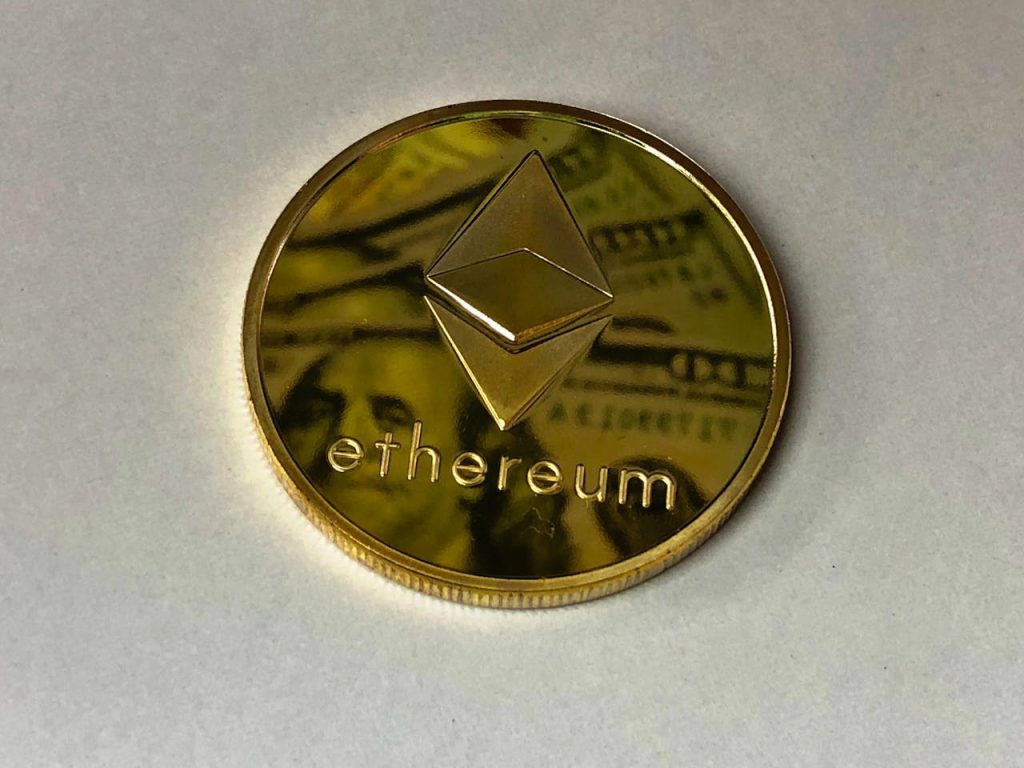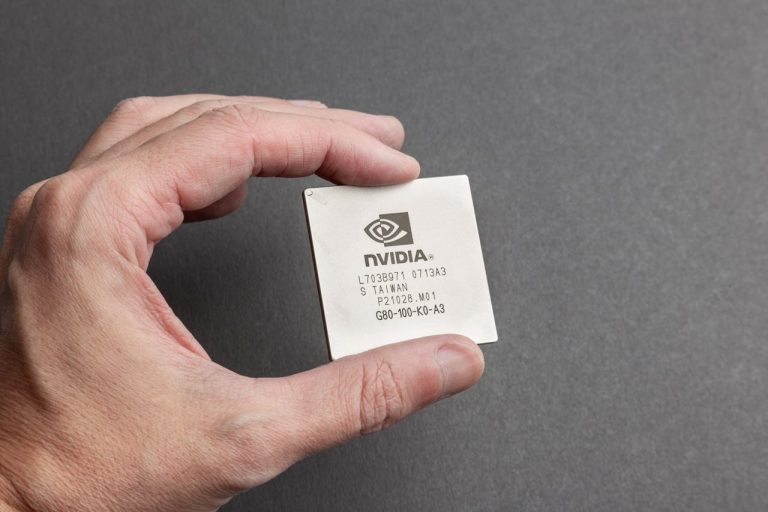In the crypto market!, Ethereum has established itself as a leader, second only to Bitcoin in terms of market capitalization and user base. Due to its limited supply, Ethereum outperforms Bitcoin and creates new opportunities for the dApp ecosystem. Bitcoin is often compared to digital gold. Because of this divergence, Ether traders have become increasingly interested in Ethereum-based ETFs and keep a close eye on market movements.
With the recent approval of the first Bitcoin ETF by the US Securities and Exchange Commission (SEC), there is now more optimism for the approval of Ethereum ETFs. A number of proposals are under consideration, including turning the grayscale Ethereum trust into an exchange-traded fund (ETF). The introduction of ETH ETFs could accelerate the acquisition of Ethereum, increase its value, and attract institutional investors looking to diversify their portfolios with this emerging asset class.
What is Ethereum ETF: What is ETF Means?
Consider an Ethereum ETF as a collection of assets that represent the value of Ethereum. These ETFs trade on well-known stock markets such as the NYSE, as opposed to buying Ethereum directly on a cryptocurrency exchange. This makes it possible for traditional investors who are accustomed to the convenience and safety of regulated platforms to experience fluctuations in Ethereum’s price. Eliminate dealing with complicated exchanges or digital wallets; Ethereum ETFs provide a tangible experience combined with the potential rewards of the cryptocurrency space.
Investors around the world are interested in the idea of cryptocurrency exchange-traded funds (ETFs), especially those based on Ethereum. An investment fund that tracks the market value of Ethereum is called an Ethereum ETF, or ETH ETF token. Unlike direct Ethereum purchases made on cryptocurrency exchanges, Ethereum ETFs are traded on traditional stock exchanges. This makes it possible for investors to participate in Ethereum market movements without having to deal with the hassles of digital asset management, especially for those who are not familiar with the nuances of cryptocurrencies.
How Does Ethereum ETF Works?
Investors can follow Ethereum price changes with an Ether ETF without directly buying and holding the cryptocurrency. On behalf of its investors, the ETF invests in Ethereum or Ethereum-based assets to accomplish this. Ethereum ETFs do the following:
• Structure and purchase method
A fund manager establishes an Ethereum ETF by setting up a fund based on the price of Ethereum. Like stocks, investors can buy and sell shares of this ETF in traditional stock markets. For many investors, this is a more familiar and convenient method than using cryptocurrency exchanges.
• Ethereum Price Exposure
The price of an Ethereum ETF is directly linked to the price of Ethereum. The ETF’s value is predicted to fluctuate with comparable percentage changes in Ethereum’s price. This enables investors to make price predictions for Ethereum without actually holding the cryptocurrency.
Benefits of Ethereum
An ETF for Ethereum would be more than just a catchphrase. It will provide many revolutionary benefits.
• Access
Through their existing brokerage accounts, traditional investors who have long been unwilling to engage in cryptocurrencies can now expose themselves to Ethereum. With your existing brokerage account, you can buy and sell them like stocks without the need for cryptocurrency wallets or complicated exchange tracking.
• Increased Legitimacy
Having an Ethereum ETF listed only on major exchanges will give the cryptocurrency industry as a whole more legitimacy and recognition while bridging the divide between traditional finance and the rapidly expanding realm of digital assets.
• Liquidity Lifeline
Ethereum’s liquidity can increase significantly if institutional and general investors participate more through ETFs. Everyone will benefit from smoother, less volatile trading as a result, including large funds and small traders.
• Reduced Security Risks
By avoiding the need for individual cryptocurrency wallets, investors reduce exposure to hacking attacks and security issues related to digital assets. Additionally, ETFs are governed by regulations, which provide a degree of security and transparency not necessarily found in the bitcoin market.
Types of Ethereum ETFs
ETH Spot ETFs and ETH Futures ETFs are the two main categories that Ethereum ETFs fall into.
• Spot Ethereum ETF
Ethereum spot ETFs store Ethereum coins directly, pretty much acting as digital wallets. The value of the ETF provides direct price exposure reflecting the current price of Ethereum. A fund manager would buy real Ethereum tokens, for example, if they wanted to set up an ETH Spot ETF. The value of the ETF will change in response to changes in the current price of Ethereum. If the price of Ethereum increases by 10%, the value of the ETF should increase by a comparable amount, less any fees or expenses.
• Futures Ethereum ETF
Ethereum Futures ETFs invest based on the price of Ether, rather than holding Ethereum in futures contracts. These contracts are commitments to buy or sell Ethereum at predetermined future prices. For example, Ethereum futures traded on the commodity market can be invested through the ETH Futures ETF. This gives you access to Ethereum price fluctuations without the need to hold the underlying asset. The success of these futures contracts will be reflected in the value of the ETF.
Ethereum ETF Approval Date
On May 23, 2024, the US Securities and Exchange Commission (SEC) allowed the sale of spot Ethereum ETFs (Exchange-Traded Funds). The Nasdaq, NYSE, and CBOE exchanges submitted proposals to the SEC, requesting amendments to existing regulations to allow trading of Ethereum exchange-traded products (ETPs) and ETFs.
This is the second ruling on cryptocurrency exchange-traded products made by the SEC. After a long legal battle, the SEC approved Bitcoin ETFs and ETPs earlier this year in January 2024. The exchanges were able to get the SEC to approve a regulation amendment that was necessary to list these new products.
However, trading will not begin once issuers are required to approve each ETF registration statement with the SEC that includes investor disclosures. Industry insiders told Reuters that it was uncertain how long the SEC’s approval procedure may take.
Market Overview After Ethereum ETF Approval
• Price: US$3,667.85
• 24h Volume: US$48,625,852,656
• Market Cap: US$441,291,360,778
• 24h High/Low: US$3,937.90 / US$3,673.41
• 1h Change: -1.58%
• 24h Change: -3.13%
• 7d Change: +24.56%
• Support Level: US$3,498
• Resistance Level: US$3,953
Interpretation:
Ethereum, the second-largest cryptocurrency by market capitalization, continues to be the focus of market attention, especially since the US Securities and Exchange Commission (SEC) recently approved spot Ethereum ETFs. The price of Ethereum on May 24, 2024 was US$3,667.85, indicating a remarkable growth of 24.56% over the previous week but a decrease of 3.13% over the previous 24 hours.
Ethereum has seen significant growth over the past week, gaining 24.56%. The idea that the SEC will finally approve spot Ethereum ETFs on May 23rd is largely responsible for this spike. The last day’s drop of 3.13%, however, suggests a corrective phase—possibly as traders take profits on recent gains.
Factors Influencing Ethereum’s Price
• SEC Approval of Spot Ethereum ETFs
The SEC’s approval of spot Ethereum ETFs is one of the most significant recent developments affecting Ethereum’s price. With this certification, Ethereum achieves a historic milestone and gains recognition as a competitive investment option alongside Bitcoin, which has already received approval for an ETF.
• Industry Reactions
Matthew Siegel, head of digital assets research at VanEck, expressed optimism about the political change that led to the approval of ETFs. He pointed out that increased investment in Ethereum and other blockchain projects will likely come from a better political environment, which will create more beneficial outcomes for developers and investors in digital assets.
Another company with an authorized space Ethereum ETF, Bitwise Invest, called the SEC’s decision a historic one that underscores Ethereum’s importance in the cryptocurrency space. The clearance is expected to generate a significant amount of institutional interest, similar to the approval of spot bitcoin ETFs.
• Market Impact
Ethereum market dynamics are expected to be significantly affected by the approval of spot Ethereum ETFs. Institutional investors can now gain access to Ethereum through regulated and easily accessible exchange-traded funds (ETFs), which can increase demand and drive up prices. Ethereum ETFs could potentially be as successful as spot Bitcoin ETFs, which garnered billions of dollars in investment during their successful launch.
• Political and Regulatory Environment
The SEC’s decision to issue spot Ethereum ETFs was significantly influenced by the changing political landscape in the United States. The House of Representatives recently passed the Financial Innovation and Technology for the 21st Century Act (FIT21), which seeks to give the Commodity Futures Trading Commission (CFTC) additional authority to regulate digital commodities such as cryptocurrency and Ethereum. It is expected that increased regulatory clarity will improve the environment for cryptocurrency investment.
Impact on the Market After Ethereum ETF Approval
Here is some point to discuss about, what is the impact on the market when Ethereum ETF approved. Let’s discuss them in detail.
• Implications for Blockchain Innovation and DeFi
The adoption of Ethereum spot ETFs is expected to reverberate throughout the decentralized finance (DeFi) industry. DeFi systems, which primarily use the Ethereum blockchain, can become more liquid and stable as a result of increased institutional investment in Ethereum. Additionally, as developers gain confidence in the long-term stability of the network, this development could inspire creativity in Ethereum-based projects.
• Competitive Landscape
Ethereum is in a better position than other blockchain networks because of its better status as a regulated investment instrument. Ethereum’s maturity and dependability has been highlighted by the introduction of spot ETFs, which can lure developers and investors away from rival platforms. To maintain its competitive edge, Ethereum must now face scalability and performance challenges while continuing to evolve.
• Investor Sentiment
The SEC’s acceptance of spot Ethereum ETFs has greatly improved investor sentiment. A significant rise in prices over the past week indicates this optimistic outlook. Institutional interest and clear regulations are expected to sustain this optimistic outlook by encouraging additional investment and ecosystem development in Ethereum.
Conclusion
The initial set of exchange-traded funds (ETFs) investing directly in Ethereum have received approval from the Securities and Exchange Commission (SEC).
Nevertheless, the official launch of Ethereum spot ETFs could take several months. Initial approval has been granted by the US Securities and Exchange Commission (SEC) for the first exchange-traded funds (ETFs) that will invest directly in Ether, a cryptocurrency within the Ethereum network. The government accepted 19b-4 filings from VanEck, Bitwise, Fidelity, BlackRock, Invesco Galaxy, and Franklin Templeton.
However, since ETF sponsors have not yet secured S-1 registrations, Ethereum spot ETFs may take several months to formally launch. Compared to the process of Bitcoin ETFs, which started trading a day after receiving SEC clearance, there is a big difference.
Compared to Bitcoin, Ethereum has come under more scrutiny as a potential investment, and the SEC has been somewhat blocked by Congress and large funds. There has been a lot of pressure regarding this choice.
Using Bitcoin history as a comparison, the ETF was worth $47,000 when it was authorized. It then fell to $40,000 over the next 20 days before rising sharply to $73,000. This was an increase of more than 100 percent in just one and a half months. With this news, Ethereum could follow a similar path, possibly retreating below $3,000 before trying to regain or surpass the previous peak.








